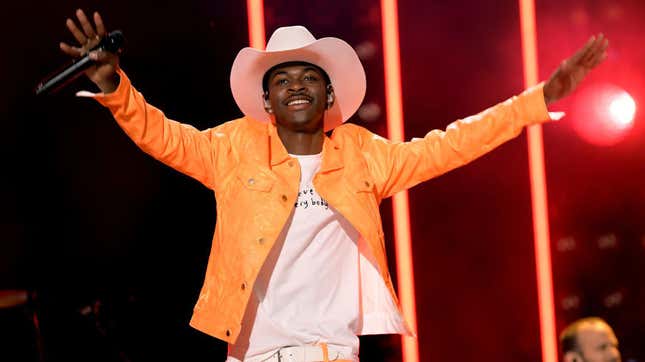

“Old Town Road” is still the number one hit on the Billboard Top 100 chart and it has been for 12 straight weeks. Right below it is Taylor Swift’s song “You Need to Calm Down,” and when she previously debuted her song “ME!” it also landed in the number two spot on the chart.
Much has been written about the massive success of “Old Town Road,” with a repeated emphasis on how the song is keeping other artists (Ed Sheeran, Post Malone, and Justin Bieber among them) but especially Swift’s songs from the top. The song has “prevented” Swift’s singles from reaching the number one spot and it’s “kept Taylor Swift out of the number one spot.” “If Taylor Swift can’t have a number one pop hit in 2019, can anyone?” Vanity Fair asks, which makes little sense. Someone already has the number one pop hit of 2019: Lil Nas X. The framing continually is that such a spot is not just home for Taylor Swift, but one she deserves even if her new songs aren’t great.
-

-

-

-

-

-

-

-

-

-

-

-

-

-

-

-

-

-

-

-

-

-

-

-

-

-

-

-

-

-

-

-

-

-

-

-

-

-

-

-








































